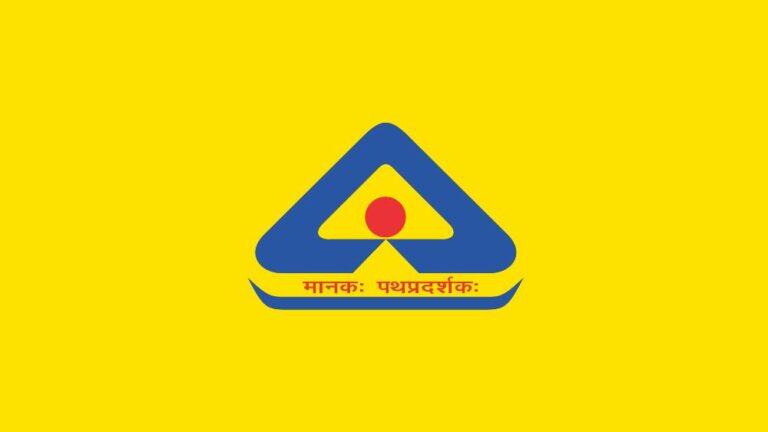Over the past decade, the Indian Central government has mandated higher standards for the production and importation of various items, ranging from toys, footwear, and furniture to insulated flasks, smart meters, and air coolers. For instance, until 2014, there were only 14 Quality Control Orders (QCOs) covering 106 products. As of the latest count, this number has risen to 156 QCOs encompassing 672 products.
These QCOs, issued by government departments in collaboration with the Bureau of Indian Standards (BIS), are mandatory, unlike the many other standards recommended by the BIS. While the government asserts that QCOs are implemented to ensure product quality, protect human, animal, and plant health, and prevent deceptive practices, domestic industries argue that these measures impose significant burdens. Additionally, they often lead to disputes with trading partners at the World Trade Organization (WTO).
Adhering to specified quality standards through Quality Control Orders (QCOs) often leads to increased production costs for domestic industries. However, these standards can also be perceived as trade barriers by international partners. QCOs, falling under the Technical Barriers to Trade (TBT) agreement of the WTO, aim to ensure that technical regulations and standards do not unfairly impede trade. While the agreement supports the right of WTO members to implement measures for legitimate policy goals, it also encourages the use of international standards to promote a consistent trading environment. India argues that developed nations and China have utilized QCOs as trade barriers to limit imports from countries like India. As a result, India seeks to bridge this gap by addressing these perceived trade barriers.
In 2023, India stood in the eighth position for submitting notifications under the TBT agreement to the WTO. The European Union and India are the top two respondents to concerns by members on standards, testing, and certification at the Committee on TBT. Countries including the United States, Canada, and Taiwan in a joint statement last year raised concerns over India’s QCOs over the years in sectors such as toys, chemicals, ICT (information and communication technology) products, and automobile parts. On the recognition of internationally accredited laboratories, the countries asked India to provide greater clarity and transparency regarding the steps laboratories can take to obtain such recognition from the BIS.
“Currently, exporters whose products have already been certified by accredited international laboratories report that results from these laboratories are not being accepted as proof of compliance. As a result, exporters are forced to undertake duplicative testing. We urge India to utilise the benefits of ILAC (International Laboratory Accreditation Cooperation) membership and accept foreign laboratory test results from ILAC-accredited labs as proof of compliance with Indian requirements,” they said.
India, in response, said it had used accreditation by ILAC as a conformity assessment procedure where appropriate. The country further confronted the countries on whether all ILAC-accredited foreign labs were automatically recognised by them and whether the recognition of ILAC-accredited foreign labs was limited to certain sectors or products. The longest-standing TBT-related concern raised in 2023 at the WTO was on India’s QCO on pneumatic tyres and tubes for automotive vehicles, which dates back to 2005.
Domestic Industry’s Perspective
While the government’s emphasis on non-negotiable quality standards has garnered support from a majority of the domestic industry, there are calls for a more industry-friendly approach to implementing Quality Control Orders (QCOs) following extensive stakeholder consultations. Critics argue that a lack of coordination among government agencies has led to confusion regarding the implementation of QCOs.
For instance, in the case of toys for children up to 14 years old, a notification from the customs department expanded the scope to include parts and components, not just the final product. Similarly, with protective textiles for office chairs, QCOs have been used to halt imports of both raw materials and furniture featuring these textiles. While some clarity has been provided for certain products like nuts and bolts, where the order exempts those incorporated into machines, ambiguity persists in many QCOs, leading companies to seek clarification without a standardized redressal mechanism.
There are suggestions that QCOs should encompass the entire value chain of a product to address these concerns. If quality control measures span the entire value chain, product quality is likely to improve. For example, if quality control is only applied to raw materials or finished products but not both, ensuring adherence to quality standards for the final product becomes challenging. Likewise, implementing quality control solely on finished products without oversight of raw materials may lead to the use of inferior imported materials in manufacturing.
Seeking Clarity
Quality Control Orders (QCOs) are frequently imposed on primary engineering raw materials, where only a handful of major players dominate the supplier landscape. While advocating for the encouragement of imports of high-quality products when necessary, it’s essential to establish mutual recognition agreements. These agreements would enable the acceptance of imports conforming to quality standards equivalent to those of major exporting countries, streamlining the process for businesses. However, the implementation of QCOs often presents challenges, as companies find themselves grappling with insufficient time for adaptation and ambiguity regarding the sale of already manufactured goods.
Navigating the bureaucracy involved in obtaining approval from the Bureau of Indian Standards (BIS)-approved laboratories adds further complexity. This process is notorious for its time-consuming nature, potentially causing significant disruptions in business operations. Without the requisite BIS license, products cannot be imported or manufactured, further exacerbating the situation. The sudden imposition of QCOs on user industries, particularly Micro, Small, and Medium Enterprises (MSMEs), can disrupt production cycles, contributing to inflationary pressures.
While QCOs are intended to uphold quality standards within the country, they should not be wielded as protective measures favouring specific manufacturers. Developing comprehensive standards for all products is a time-intensive endeavour, requiring careful planning and stakeholder consultation. These concerns were underscored by representatives from the plastics industry during recent discussions with Trade Minister Piyush Goyal. Small manufacturers often find themselves disproportionately burdened by QCO-related compliances, highlighting the disparity in resources and capabilities between large corporations and smaller enterprises.
Despite the challenges, QCOs represent a positive step forward in ensuring product quality. However, the limited testing infrastructure in the country poses a significant hurdle. While larger corporations may possess in-house testing capabilities or the financial means to invest in testing facilities, smaller entities face greater obstacles in this regard. The financial burden of high testing fees further exacerbates the disparity, placing smaller businesses at a distinct disadvantage. While QCOs hold promise for enhancing quality standards, addressing the associated challenges, such as limited testing infrastructure and disproportionate burdens on smaller businesses, is imperative for their effective implementation.
Quality Control Orders (QCOs) are beneficial for the country as they favour domestic manufacturers. However, implementing these orders can be challenging due to the disruptions they cause, which often lead to unease. Take the toy industry, for example. Initially, there was significant opposition within the industry to the introduction of QCOs. Over time, however, the industry has become a strong advocate for these standards. To ensure smoother implementation of QCOs, the ministries and the Bureau of Indian Standards (BIS) must engage in more comprehensive consultations with all stakeholders before enforcing higher standards. Establishing a structured process for handling complaints and feedback would also be advantageous, leading to better outcomes for everyone involved.






















